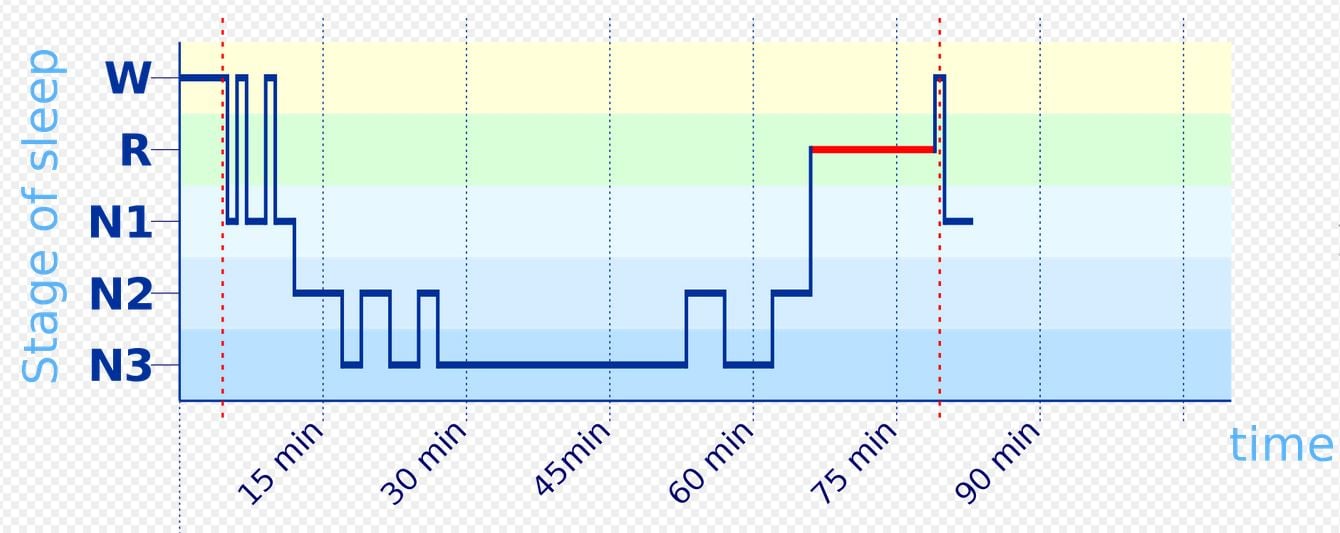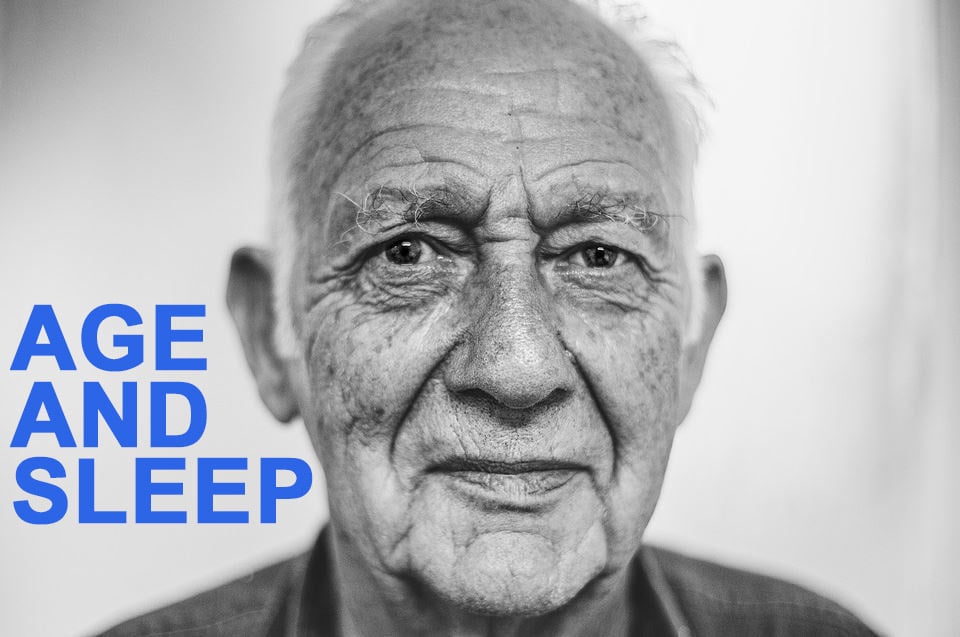How Sleep Changes as We Age
Changes in your sleep patterns are a normal part of aging. In general, people tend to have less satisfactory sleep and more sleep disruptions than when they were younger. Problems can include both falling asleep and staying asleep. As a result, an extremely common misconception about sleep is that we need less sleep as we get older, simply because older individuals are able to function daily with less sleep.In actuality, the need for sleep remains constant throughout life. If nighttime sleep becomes more challenging, then the remaining sleep needs must be made up during other parts of the day. This may be why the need or desire for naps increases with age. Another sleep-related change may be early rising and early bedtimes, making it more challenging to stay asleep or stay awake as long as you would like.
What are the Five Stages of Sleep?
Sleep occurs in five stages and two different types of sleep: (1) Non-Rapid Eye Movement (NREM) and Rapid Eye Movement (REM) sleep. These periods include dreamless periods of light and deep sleep and periods of active dreaming sleep. While we sleep, we cycle through these stages multiple times throughout the night. These stages are [Sleep Association]:- Stage 1 (NREM): lightest stage of sleep which includes the Alpha phase (daydreaming, meditation) and Theta phase (switching in between awake and sleep), and is characterized by normal breathing, present muscle tone, and slower EEG brain frequency.
- Stage 2 (NREM): light stage of sleep that lasts about 20 minutes, and is characterized by slow breathing, cooler body temperature, slow heartbeat, and a disengaged brain.
- Stage 3 (NREM): transition between light and deep stages of sleep where the brain begins to send Delta waves throughout the body.
- Stage 4 (NREM): very deep sleep with slow Delta waves that lasts about 30 minutes, and is characterized by fully relaxed muscles, renewal of energy in the body, and release of anti-stress hormones.
- Stage 5 (REM): deepest stage of sleep characterized by dreams, high brain activity, and immobilized body.

Simplified graph showing 5 stages of sleep
When you go to sleep, your body may go through this sequence in order, but once achieved it may skip around between the stages. Most people tend to experience REM sleep 4-5 times per night.
Aging and the Stages of Sleep
In addition to having more trouble falling and staying asleep, older people tend to [National Sleep Foundation]:- Spend more time in the "lighter" stages (stages 1 and 2) of sleep
- Spend less time in the more restorative, deeper stages (stages 4 and 5)
- Experience less REM sleep
- Experience more awakenings during sleep cycle during the night
- Increase in medications
- Going to sleep earlier
- Physical conditions/illnesses
- Natural changes to circadian rhythm
Potential Sleep Problems Not Related to Age
Older people tend to exhibit more sleep disorders [NSF's 2003 Sleep in America], and may be more prone to sleep disorders. This is an important fact to recognize. It's also important to recognize what may be normal and abnormal sleep changes.
While a shift in circadian rhythm (earlier to bed, earlier to rise) may be normal, early to bed and late to rise is not considered a normal circadian rhythm shift. While it may be normal to feel less satisfied in the morning and want a nap in the afternoon, chronic sleepiness all day long is generally not a normal part of aging. Having trouble falling asleep may be normal, but lying in bed for hours every night is likely abnormal and not related to aging.
In conclusion, sleep changes with age are normal, as discussed, but extreme changes or changes that interfere with your ability to be healthy and functional are likely not related to aging. Pay attention to the factors that may be causing a sleep disorder:
- Large hormonal changes later in life
- New medications
- Not getting enough physical activity
- Stress
Keeping a sleep journal over the course of several weeks and noting down your struggles is an extremely valuable tool to bring to a doctor or sleep specialist to address any concerns you might have. If you are concerned about your sleep, then please click the blue button below to set up a sleep medicine consultation with one of our sleep health professionals.


